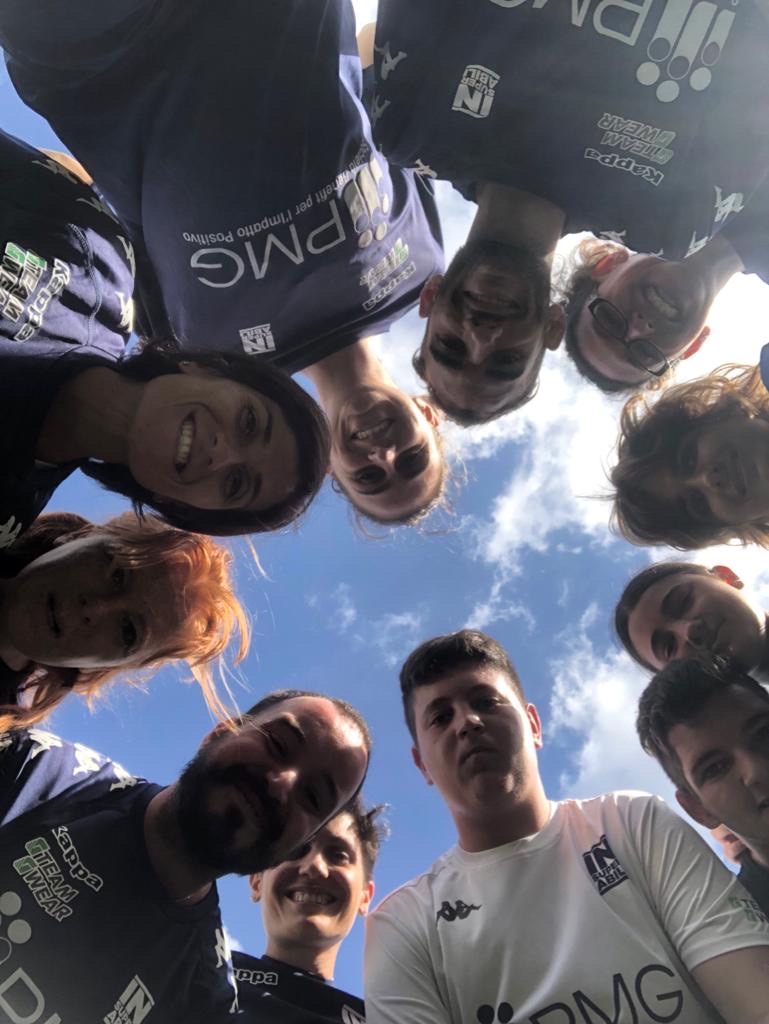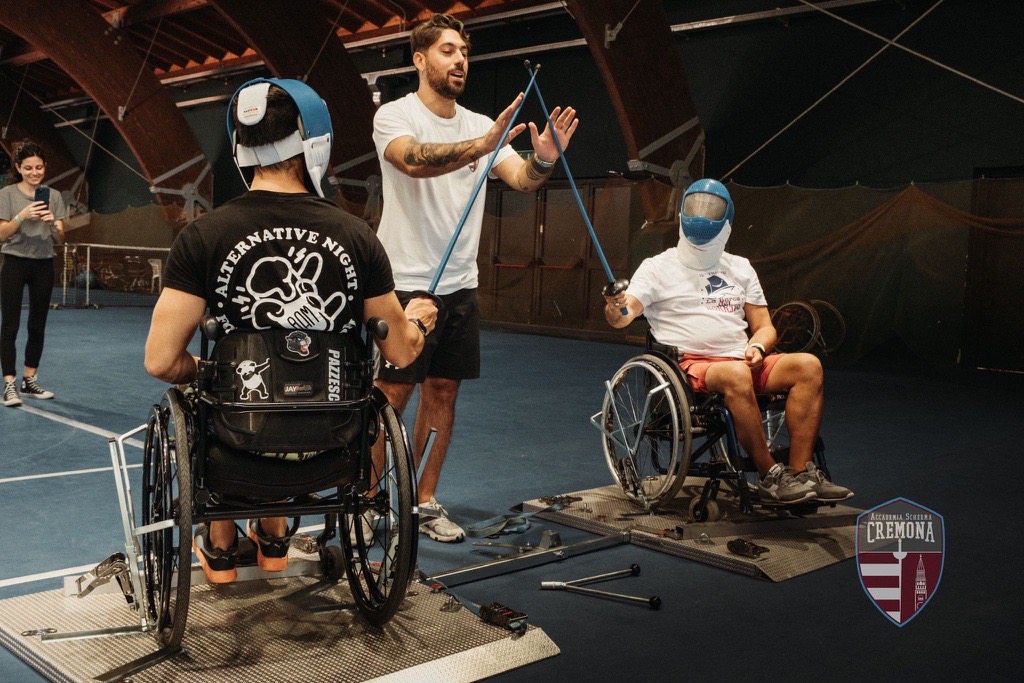Sport and Disability:
two Italian realities for sporting inclusiveness


For the European Week of Sport, CEIPES asked two great coaches and sportsmen of inclusive and Paralympic teams to talk about their experiences to promote and make known some beautiful Italian and international realities.
These are:
Pasquale Capuano, president of the Cremona Fencing Academy, with a past as a trainer in the English national team and today at the helm of the Cremonese school.
Maria Iole Volpi, former player of Roma Women’s Soccer, called up for the Azzurre and today coach of AS Roma and the football school “Gli Insuperabili”
Tell us a little about your realities:
Pasquale: The Cremona Fencing Academy is one of the oldest in Italy, founded in 1900. To date, it has about sixty athletes divided between Olympic and Paralympic athletes. It is a rapidly growing movement and we are now a solid reality in the national territory.
Maria Iole: Gli Insuperabili is a real football school for children with disabilities. Born in Turin in 2012, the following year the Rome office opens, where I train. This year we are celebrating the tenth year of activity on the national territory (and obviously the ninth in Rome). Ours is a project that has conquered families, children, schools and teams… and today we boast 17 offices throughout Italy. We are also recognized abroad, where we are called for training to companies and people who want to open their doors to all athletes, even those with disabilities.
How did you approach sport for the disabled?
Pasquale: I approached Paralympic Fencing several years ago, when I was an athlete and an athlete in a wheelchair was training in my fencing room. It was essential for me to have contact with this world as a child, to learn that sport is inclusion and integration.
Maria Iole: I was playing in Major League, I was taking my specialist degree and I only needed the final thesis, scheduled for October. Instead, in May, for the last of the championship, I break my meniscus. It seemed trivial, but during the operation they discover other complications and in the operating room they tell me that I should have used crutches. After a certain initial discontent and having seen a concert in a wheelchair, in the space reserved for people with disabilities, I decided that my thesis would have focused on architectural barriers. I then understood that the real barriers, rather than physical and architectural, are cultural and social. I approach different realities that deal with disabilities, I met various cooperatives, and I fall in love with their stories. So, I volunteer, and they hire me in a cooperative that provides school assistance to children with disabilities: it was the turning point for my life!
What is the added value of this experience?
Pasquale: It is difficult to identify a single advantage of being close to the world of Paralympic fencing or Paralympic sport in general. I felt within me the desire to become a fencing master when I was very young because I have always liked helping others and above all sharing my passion.
Maria Iole: Often as a sportswoman, athlete and today a coach, I have learned a lot from this experience. We too frequently place limits on ourselves that exist only in our heads, we limit ourselves to others only because we don’t have “time” to find alternatives. The value of sport is indisputable, beyond the physical aspect, doing sport means working on one’s mind, on willpower, on precise rules, on the relationship with others, on autonomy.
As instructors, we work on our gaze: we speak of “trainability” and not of disability, of possibilities and not limits, of methodology and not of improvisation!
Is there an event or a memory that has remained with you in your career as a coach?
Pasquale: “It is difficult to identify a single moment or event that has stuck with me. Maybe when I come home from work tired but satisfied because that feeling is like a recognition of my work.
I never knew how to answer the famous question “what do you want to do when you grow up?”, But sitting on the wheelchair, during my first fencing lesson, I realized that when you grew up you wanted to be a fencing teacher for everyone.
Nowadays I oversee teaching fencing to blind and partially sighted athletes, with bodywork and to Olympic fencing athletes.
Maria Iole: What luck, being injured!
I’ve always thought that life was a long, beautiful, football championship. Referees and episodes that do not always depend on us.
Expected, sweaty, unfair results.
Strong adversaries, stronger than us, exemplary, others unpleasant, disloyal.
But also, teammates, choral actions … or penalty kicks in solitude.
Victories, defeats, commitment, sweat and “dealing with one’s sense of omnipotence”.
We will not always be the best.
We will not all make it to the national team, we will not always be owners: but we all have the right to dream of it and to train to get to give the best of us.
Here, thanks to this wonderful chapter of my life, called “Insuperabili”, I now know that it is possible, AND DUTY, to really extend this opportunity to everyone!